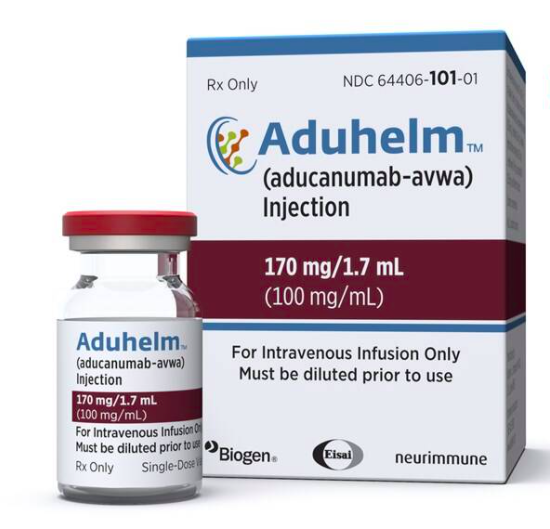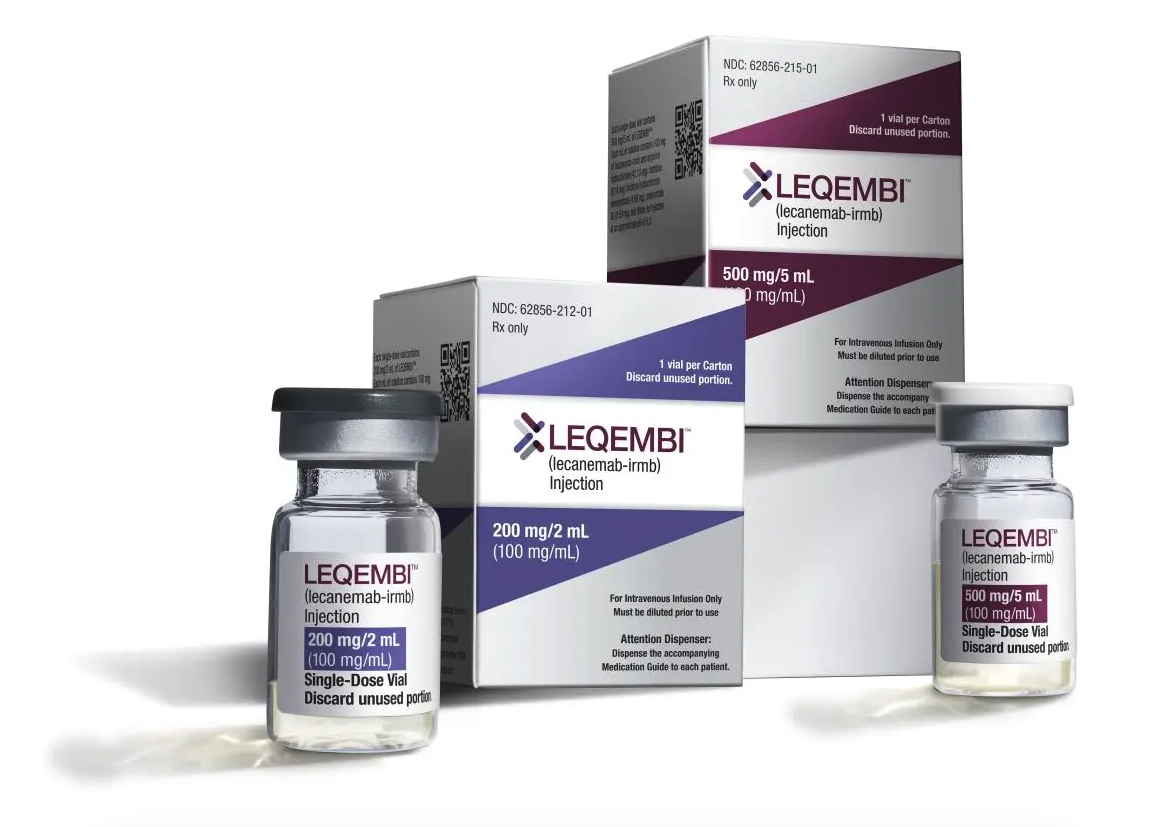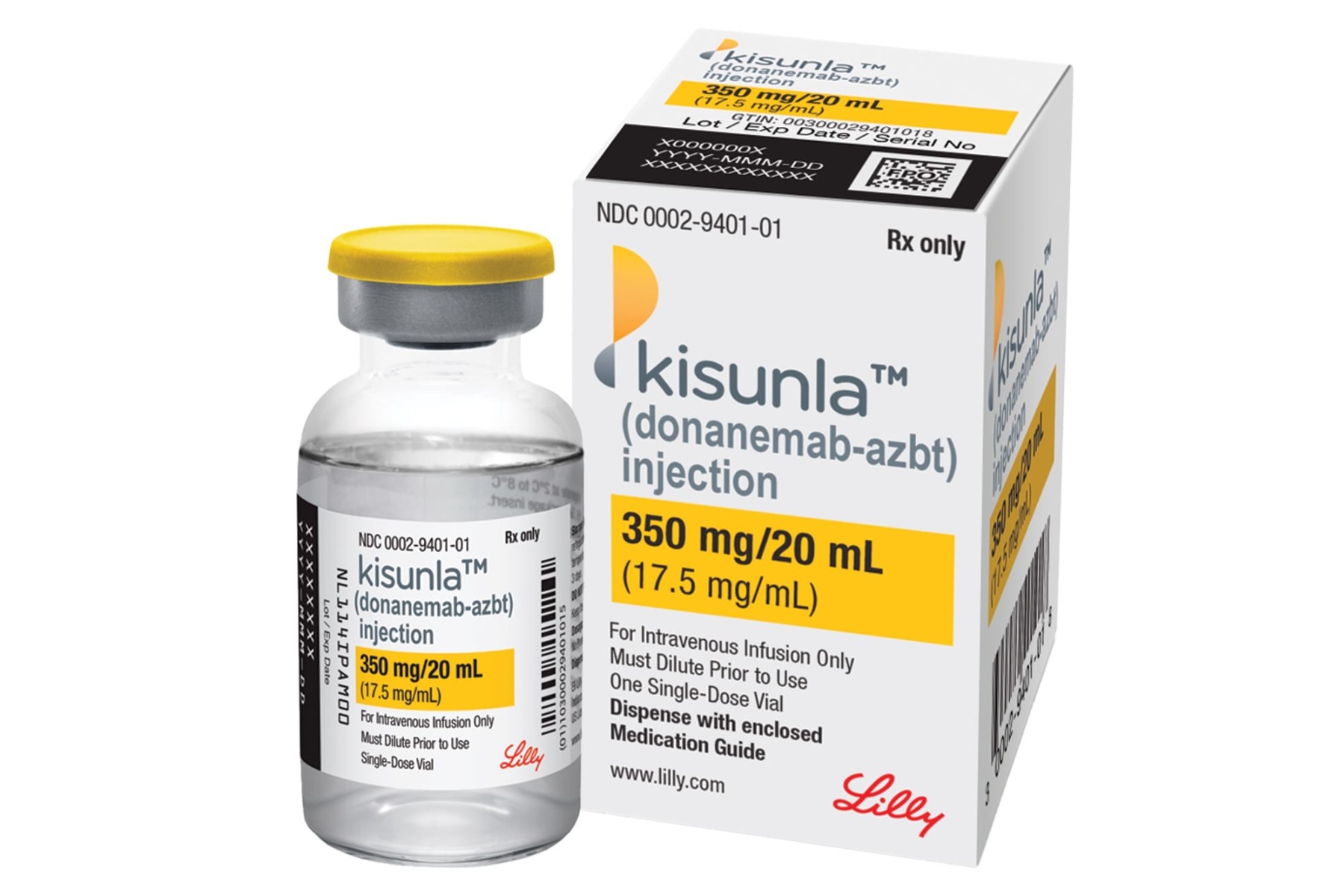New Alzheimer's disease treatments 2024
New Alzheimer's disease Treatments 2024
Alzheimer's disease is a progressive neurological disorder that leads to the shrinkage of the brain (atrophy) and the death of brain cells. It is the most common cause of dementia, a continuous decline in thinking, behavioral, and social skills that affects a person's ability to function independently. The early signs of the disease include forgetting recent events or conversations and difficulty performing familiar tasks. As the disease advances, individuals may experience disorientation, mood and behavior changes, deepening confusion about events, time and place, unfounded suspicions about family, friends, and professional caregivers, more severe memory loss and behavior changes, and difficulty speaking, swallowing and walking. There is currently no cure for Alzheimer's disease, but there are medications that can help manage symptoms, although none can stop the disease from progressing.
When researching treatment options for Alzheimer's disease, it is important to consider both FDA-approved medications and those that may be prescribed off-label. Currently approved medications include cholinesterase inhibitors (such as donepezil, rivastigmine, and galantamine) and memantine, which may help manage symptoms by affecting neurotransmitters related to memory and judgment. Some patients may be prescribed a combination of a cholinesterase inhibitor and memantine. Additionally, new treatments are under investigation and may become available, offering potential benefits. It is crucial to consult with a healthcare professional to determine the most appropriate medication based on the individual's specific condition, medical history, and other factors, and to understand the potential risks and benefits of each treatment option.

Treatment options
| Treatment option | Estimated cost | Efficacy | Eligibility |
|---|---|---|---|
| Cholinesterase inhibitors (Donepezil, Rivastigmine, Galantamine) | $50 - $200 | May help reduce symptoms for mild to moderate Alzheimer's | Patients with mild to moderate Alzheimer's disease |
| Memantine (Namenda) | $100 - $300 | May help slow progression of moderate to severe Alzheimer's | Patients with moderate to severe Alzheimer's disease |
| Aduhelm (Aducanumab) | $2,560 - $8,300 | Intended to reduce amyloid beta plaques; efficacy in improving cognitive function is controversial | FDA-approved for Alzheimer's disease, but recommended for early or mild cases |
| Leqembi (Lecanemab) | $2,500 - $8,000 | Targets amyloid beta plaques; shown to modestly slow cognitive decline | FDA-approved under accelerated approval for Alzheimer's disease |
| Antidepressants (for associated depression) | $10 - $300 | Can help manage depression symptoms in Alzheimer's patients | Patients with Alzheimer's disease and comorbid depression |
| Antipsychotics (off-label for behavioral symptoms) | $20 - $500 | May help with aggression, agitation, and psychosis; associated with increased risk of death in elderly | Patients with Alzheimer's disease with severe behavioral symptoms |
| Cognitive therapies | $100 - $400 | May help maintain cognitive function; efficacy varies | Patients with all stages of Alzheimer's disease |
| Experimental treatments (e.g., Gantenerumab, Donanemab) | Varies (not commercially available) | Under investigation; efficacy and safety not yet established | Patients enrolled in clinical trials |
Treatments options in detail
Pharmacological Treatments for Alzheimer's Disease
The treatment of Alzheimer's disease primarily involves medications that can help manage symptoms, although they do not cure the disease or stop its progression. The most common treatments include cholinesterase inhibitors and memantine. Cholinesterase inhibitors, such as donepezil, rivastigmine, and galantamine, are typically prescribed to treat mild to moderate Alzheimer's. They work by slowing the breakdown of acetylcholine, a neurotransmitter that is important for learning and memory. Memantine, on the other hand, is used to treat moderate to severe Alzheimer's disease and works by regulating the activity of glutamate, another neurotransmitter that plays a role in learning and memory.
In addition to these, combination therapy with memantine and a cholinesterase inhibitor is sometimes prescribed. This approach aims to target different aspects of the disease simultaneously, potentially offering a more comprehensive management of symptoms.
Aduhelm (Aducanumab)
Aduhelm (aducanumab) is a treatment that has received FDA approval under the accelerated approval pathway for Alzheimer's disease. It is a monoclonal antibody designed to target amyloid-beta plaques, which are characteristic of Alzheimer's disease and are thought to play a role in the disease's progression. Aduhelm is indicated for patients with mild cognitive impairment or mild dementia stage of the disease, and it is the first therapy that targets the underlying pathophysiology of Alzheimer's disease rather than just the symptoms.
The approval of Aduhelm has been controversial due to questions about its efficacy and the interpretation of clinical trial data. It was approved based on its ability to reduce amyloid plaques in the brain, which is expected to lead to a reduction in clinical decline. However, the clinical benefit of Aduhelm remains uncertain, and ongoing studies are expected to provide more definitive evidence of its effectiveness.
Leqembi (Lecanemab)
Leqembi (lecanemab) is another monoclonal antibody that targets amyloid-beta plaques in the brain. While not yet approved by the FDA, it has shown promise in clinical trials by reducing cognitive and functional decline in patients with early Alzheimer's disease. Lecanemab binds to amyloid plaques and facilitates their removal from the brain, potentially slowing the progression of the disease. It is currently being evaluated in further clinical trials to confirm its efficacy and safety profile.
Other Medications and Off-Label Use
There are other medications that are sometimes used off-label for Alzheimer's disease, such as certain antidepressants, antipsychotics, and anti-convulsants. These medications may be prescribed to manage neuropsychiatric symptoms of Alzheimer's, like depression, agitation, and sleep disturbances. However, their use is based on the clinician's judgment and is not specifically approved for Alzheimer's disease by the FDA. It is important to note that antipsychotic medications are associated with an increased risk of mortality when used in elderly patients with dementia-related psychosis.
Non-Pharmacological Interventions
In addition to medications, non-pharmacological interventions are an important part of Alzheimer's disease management. These include cognitive stimulation therapy, physical activity, occupational therapy, and dietary modifications. These interventions can help maintain cognitive function, manage behavioral symptoms, and improve quality of life. Support for caregivers is also a critical component of Alzheimer's disease management, as it can help reduce caregiver stress and improve patient outcomes.
Experimental Treatments
Several experimental treatments for Alzheimer's disease are under investigation. These include other types of amyloid-targeting therapies, tau-targeting treatments, and therapies aimed at reducing inflammation in the brain. Gene therapies and stem cell therapies are also being explored as potential treatments for Alzheimer's disease. These experimental treatments are in various stages of clinical trials and are not yet available outside of research settings.
Lifestyle Interventions and Risk Reduction
Emerging evidence suggests that lifestyle interventions may play a role in reducing the risk of developing Alzheimer's disease. These interventions include engaging in regular physical exercise, maintaining a healthy diet rich in fruits, vegetables, and omega-3 fatty acids, staying socially active, and engaging in mentally stimulating activities. While these strategies are not treatments for Alzheimer's disease, they may help to lower the risk or delay the onset of cognitive decline.
Conclusion
The treatment of Alzheimer's disease is multifaceted and involves a combination of pharmacological and non-pharmacological approaches. While current treatments primarily focus on symptom management, new therapies such as Aduhelm and Leqembi are being developed to target the underlying disease pathology. The field of Alzheimer's research is rapidly evolving, and it is hoped that these and other emerging treatments will lead to more effective ways to slow or halt the progression of the disease in the future.
Symptoms
Early Symptoms
The initial symptoms of Alzheimer's disease are often mistakenly attributed to aging or stress. The most common early symptom is difficulty remembering newly learned information because Alzheimer's changes typically begin in the part of the brain that affects learning. As Alzheimer's advances through the brain, it leads to increasingly severe symptoms, including disorientation, mood and behavior changes, and deepening confusion about events, time, and place.
Individuals with Alzheimer's may have trouble understanding visual images and spatial relationships. For some, having vision problems is a sign of Alzheimer's. They may also have problems speaking or writing and may struggle with vocabulary, have trouble naming objects, or use the wrong name.
Another early symptom is the need for reminders for daily tasks or activities, which was not previously necessary. This can include forgetting important dates or events and asking for the same information repeatedly. There may also be an increased reliance on memory aids, such as reminder notes or electronic devices, or family members for things they used to handle on their own.
Middle-Stage Symptoms
As the disease progresses to the middle stage, which is typically the longest stage and can last for many years, the symptoms of Alzheimer's become more pronounced. The person with Alzheimer's will require a greater level of care. During this stage, individuals may confuse words, get frustrated or angry, or act in unexpected ways, such as refusing to bathe. Damage to nerve cells in the brain can make it difficult to express thoughts and perform routine tasks.
Symptoms may include forgetfulness of events or about one's own personal history, feeling moody or withdrawn, especially in socially or mentally challenging situations, being unable to recall their own address or telephone number or the high school or college from which they graduated. Confusion about where they are or what day it is, the need for help choosing proper clothing for the season or the occasion, and trouble controlling bladder and bowels in some individuals as the disease progresses are also common.
Changes in sleep patterns, such as sleeping during the day and becoming restless at night, are also typical. There may be an increased risk of wandering and becoming lost, as well as personality and behavioral changes, including suspiciousness and delusions or compulsive, repetitive behavior like hand-wringing or tissue shredding.
Late-Stage Symptoms
In the final stage of the disease, individuals lose the ability to respond to their environment, to carry on a conversation and, eventually, to control movement. They may still say words or phrases, but communicating pain becomes difficult. As memory and cognitive skills continue to worsen, significant personality changes may take place and individuals need extensive help with daily activities.
At this stage, individuals may require full-time assistance with personal care. This includes total assistance with eating, dressing, using the bathroom, and all other daily self-care tasks. They may lose awareness of recent experiences as well as of their surroundings, have changes in physical abilities, including the ability to walk, sit and, eventually, swallow, have increasing difficulty communicating, and become vulnerable to infections, especially pneumonia.
Cognitive Symptoms
Cognitive decline is a hallmark of Alzheimer's disease, with memory loss being a significant aspect. It often starts with difficulty remembering recent conversations, names, or events. Executive functions are also affected, leading to challenges in managing finances, making decisions, and planning complex or sequential activities. As the disease progresses, the person may experience severe disorientation, not recognizing familiar people, places, or objects.
In later stages, cognitive symptoms become more profound. The individual may lose the ability to recognize themselves or close family members. Cognitive symptoms eventually lead to a near-total loss of memory and understanding of basic concepts.
Behavioral and Psychological Symptoms
Behavioral and psychological symptoms can include depression, social withdrawal, mood swings, distrust in others, irritability and aggressiveness, changes in sleeping habits, and wandering. These symptoms can cause significant distress for both the person with Alzheimer's and their caregivers.
Apathy, or the lack of interest in previously enjoyed activities, is also common. The individual may exhibit less spontaneous activity and emotion, which can be mistaken for depression. In the later stages, individuals with Alzheimer's may experience significant changes in personality and behavior, often escalating in the late afternoon or evening (known as "sundowning"), and can include hallucinations, delusions, and paranoia.
Physical Symptoms
While Alzheimer's is often considered a disease of the mind, it also has physical manifestations. In the early stages, these may be subtle, but as the disease progresses, physical symptoms become more apparent. These can include difficulty coordinating movement, trouble with balance, and a gradual loss of muscle mass or strength, leading to difficulty standing or walking. The risk of falls can increase, potentially resulting in injury.
In the late stages, the physical symptoms can include muscle rigidity or seizures. The individual's ability to swallow is compromised, which can lead to difficulties with eating and drinking and an increased risk of aspiration, which can cause pneumonia. The loss of bodily functions eventually leads to a complete dependence on caregivers for daily activities and care.
Sensory Symptoms
Though less commonly discussed, sensory symptoms can occur in Alzheimer's disease. These may include difficulty interpreting visual information, leading to problems with depth perception, color vision, and contrast sensitivity. This can manifest as difficulty navigating steps or misjudging distances. There may also be changes in the ability to detect odors or changes in taste, which can affect appetite and nutrition.
In conclusion, Alzheimer's disease symptoms encompass a broad range of cognitive, behavioral, psychological, and physical changes. These symptoms typically worsen over time, reflecting the progressive nature of the disease. The experience of Alzheimer's can vary significantly from person to person, with some symptoms appearing earlier or being more pronounced in some individuals than in others.
Cure
Current Status of Alzheimer's Disease Cure
As of the latest medical knowledge, there is no cure for Alzheimer's disease. Alzheimer's disease is a progressive neurodegenerative disorder that gradually impairs memory and cognitive functions. Despite extensive research, the complexity of the brain and the multifactorial nature of Alzheimer's disease have posed significant challenges in finding a definitive cure.
Current Treatment Approaches
The treatment approaches for Alzheimer's disease are primarily aimed at symptom management and improving the quality of life for patients. Medications such as cholinesterase inhibitors (e.g., donepezil, rivastigmine, and galantamine) and an NMDA receptor antagonist (memantine) are approved for the treatment of cognitive symptoms of Alzheimer's disease. These drugs may help manage symptoms but do not stop the progression of the disease.
Research on Disease-Modifying Therapies
Research is ongoing to develop disease-modifying therapies that could potentially alter the course of Alzheimer's disease. These therapies target the underlying disease processes, such as the accumulation of amyloid-beta plaques and tau tangles in the brain, which are hallmark features of Alzheimer's disease. Several clinical trials have been conducted to test the efficacy of these therapies, but to date, none have been successful in demonstrating a cure.
Investigational Drugs and Treatments
Investigational drugs, such as those targeting amyloid-beta or tau, continue to be explored in clinical trials. Other therapeutic strategies include anti-inflammatory agents, antioxidants, and neuroprotective drugs. Additionally, researchers are investigating the potential of gene therapy, stem cell therapy, and the role of lifestyle factors in the management of Alzheimer's disease.
Off-Label Use of Medications
Some medications approved for other conditions are sometimes used off-label in an attempt to treat Alzheimer's disease. However, the effectiveness of off-label medications is not well-established, and their use is generally not recommended as a standard treatment for Alzheimer's disease without further evidence from clinical trials.
Future Directions and Hope for a Cure
Advancements in the understanding of Alzheimer's disease pathophysiology and genetics are paving the way for the development of new therapeutic targets. The future of Alzheimer's disease treatment may involve a combination of drugs aimed at multiple aspects of the disease, along with interventions that address vascular and metabolic health, inflammation, and lifestyle factors. While a cure is not currently available, the ongoing research provides hope that effective disease-modifying treatments may be discovered in the future.
Importance of Early Diagnosis
Early diagnosis of Alzheimer's disease is crucial for the management of the condition. Although it does not lead to a cure, early intervention can help slow the progression of symptoms and provide a better opportunity for patients to benefit from existing treatments. Biomarkers and imaging techniques are being refined to detect Alzheimer's disease at its earliest stages, even before symptoms appear.
Non-Pharmacological Interventions
Non-pharmacological interventions, such as cognitive stimulation, physical activity, and social engagement, are also important components of Alzheimer's disease management. These interventions can help maintain cognitive function and improve the overall well-being of patients, although they do not cure the disease.
Supportive Care and Palliative Measures
In the absence of a cure, supportive care and palliative measures become increasingly important as Alzheimer's disease progresses. These measures focus on providing comfort, managing behavioral symptoms, and supporting caregivers and families. They are essential for maintaining the dignity and quality of life of individuals living with Alzheimer's disease.
Conclusion
While there is currently no cure for Alzheimer's disease, the landscape of treatment and research is continually evolving. The focus remains on improving symptom management, delaying disease progression, and enhancing the quality of life for those affected. The commitment of the medical and scientific community to understanding and combating Alzheimer's disease continues to offer hope for future breakthroughs that may one day lead to a cure.
Access Alzheimer's disease medicines today
If Alzheimer's disease medicines are not approved or available in your country (e.g. due to supply issues), you can access them via Everyone.org.
How Everyone.org works

Make an enquiry
Choose the medicine you want to access, answer a couple of questions, and upload your prescription to speed things up. We’ll get back to you within 24 hours.


Make an enquiry
Choose the medicine you want to access, answer a couple of questions, and upload your prescription to speed things up. We’ll get back to you within 24 hours.


Breeze through the paperwork
We'll guide you through the required documents for importing unapproved medicine, ensuring you have all the necessary information.


Get a personalized quote
We’ll prepare a quote for you, including medicine costs and any shipping, administrative, or import fees that may apply.


Receive your medicine
Accept the quote and we’ll handle the rest - sourcing and safely delivering your medicine.

Some text on this page has been automatically generated. Speak to your physician before you start a new treatment or medication.
Let's talk
If you have any questions, call us or send us a message through WhatsApp or email:
Contact us





